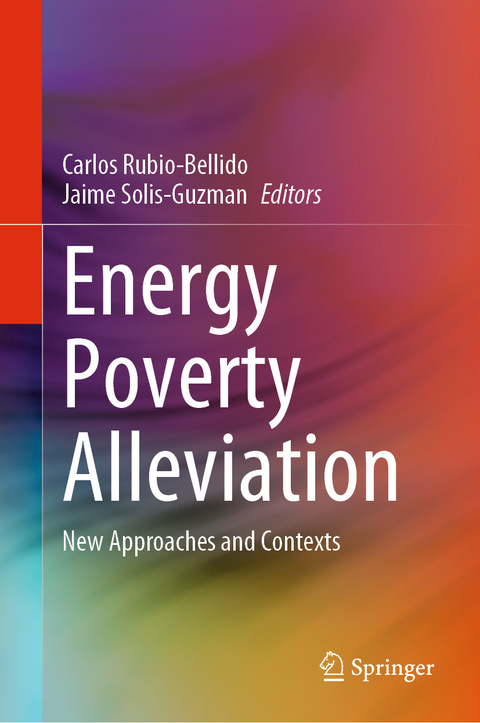
Energy Poverty Alleviation
Springer International Publishing (Verlag)
978-3-030-91083-9 (ISBN)
The book is divided in two main blocks. The first part, New Approaches, involves novel assessments and concepts from a global and multidisciplinary point of view. The second part, Contexts, offers new theoretical diagnoses focused on case studies of different scales from around the world, and concepts for future trends.
Energy Poverty Alleviation will be of interest to policy makers, stakeholders, academics and researchers with knowledge in the energy poverty field.
lt;b>Carlos Rubio Bellido is an Associate Professor of the Construcciones Arquitectónicas II Department at Universidad de Sevilla. He is an international member of the academic committee of the Master in Sustainable Habitat and Energy Efficiency, as well as a member of the board of the Doctorate in Architecture and Urbanism, at Bio-Bio University. He teaches several courses related to energy, urban planning and building management. He has published extensively in the fields of poverty, energy efficiency, thermal comfort, adaptive comfort, energy consumption and climate change.
Jaime Solís Guzmán is an Associate Professor in the Construcciones Arquitectónicas II Department at Universidad de Sevilla. He is currently coordinating two projects: one on transfer to the productive sector called Andalusian Ecological Certificate for the Construction of Buildings and the second on energy poverty, called New Comprehensive Analysis of Energy Poverty in Andalusia. He has published over 70 research works in the fields of Sustainable construction, waste management, energy poverty, and impact assessment.
Energy Poverty (re)Invented? Discussing Concept and Regulatory Gaps in the EU.- Energy Poverty in Developing Regions: Strategies, Indicators, Needs and Technological Solutions.- Reducing Energy Poverty and Carbon Footprint of Social Housing Projects.- Gentrification in Deteriorated Urban Areas and its Relationship with the Index of Vulnerable Homes (IVH).- Towards the Comprehensive Bonus for Social Housing Services.- From the Regional Assessment to the Local Identification of Energy Poverty.- Energy Poverty in Japan: Current Trends and Future Challenges.- Energy Poverty in Finland: Reality and Challenges in the Face of Climate Change.- Ecuadorian Social Housing: Energetic Analysis Based on Thermal Comfort to Reduce Energy Poverty.- Analysing the Effectiveness of the Energy Conservation Measures to Reduce Energy Poverty Cases in the Southern Regions of Spain.- Evaluating the Possibility of Applying the Poverty Adaptive Degree Hourly Index (PADHI) in Andalusia.- Assessing the Possibility of Using Adaptive Setpoint Temperatures in Buildings in Southern Spain to Reduce Energy Poverty.- Measuring Energy Poverty at the Urban Scale: a Barcelona Case Study.
| Erscheinungsdatum | 18.01.2022 |
|---|---|
| Zusatzinfo | VIII, 284 p. 56 illus., 48 illus. in color. |
| Verlagsort | Cham |
| Sprache | englisch |
| Maße | 155 x 235 mm |
| Gewicht | 595 g |
| Themenwelt | Naturwissenschaften ► Biologie ► Ökologie / Naturschutz |
| Technik ► Elektrotechnik / Energietechnik | |
| Schlagworte | Building Energy Efficiency • energy efficiency • Energy Policy • energy poverty • Energy-Related Deprivation • Energy-Related Disadvantage • Fuel Poverty • household energy |
| ISBN-10 | 3-030-91083-0 / 3030910830 |
| ISBN-13 | 978-3-030-91083-9 / 9783030910839 |
| Zustand | Neuware |
| Haben Sie eine Frage zum Produkt? |
aus dem Bereich


